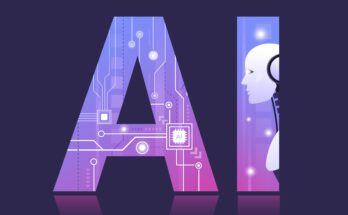The emergence of Devin AI, the world’s first AI software engineer, has sparked a significant debate: will AI eventually replace human programmers altogether? While Devin’s capabilities are impressive, with its ability to automate tasks, write code, and even debug applications, the answer is a resounding no. Devin is poised to revolutionize the software development landscape, but it’s not here to take developers’ jobs; it’s here to augment them.
This post will delve into the potential impact of Devin AI on the future of software development, focusing on the power of collaboration between humans and AI. We’ll explore:
- Strengths of Devin AI:
- Automation: Devin can handle repetitive coding tasks like generating boilerplate code, data validation, and unit testing. This frees up valuable developer time for more complex problem-solving, innovation, and architectural design.
- Efficiency: Devin’s ability to work tirelessly and consistently can significantly increase development speed. This allows teams to complete projects faster and iterate more rapidly.
- Error Reduction: Devin can analyze code and identify potential bugs before they become critical issues, leading to more robust and reliable software.
- Limitations of AI:
- Creativity and Innovation: While AI can learn and adapt, it currently lacks the creativity and out-of-the-box thinking that human developers possess. Complex problems and groundbreaking solutions still require human ingenuity.
- Domain Expertise: Understanding the specific needs and nuances of a project domain is crucial for successful software development. Devin might require human input and guidance to excel in industry-specific projects.
- Ethical Considerations: AI algorithms can perpetuate biases present in the data they’re trained on. Developers need to be aware of these potential biases and work with Devin to ensure ethical software development.
- The Future of Collaboration:
- Amplifying Human Capabilities: Devin can become a powerful tool for human developers, automating mundane tasks and allowing them to focus on higher-level cognitive work. This fosters a more efficient and productive development process.
- Democratizing Software Development: Devin’s ability to assist with coding tasks might make software creation more accessible, even for those without extensive programming experience. This could lead to a more diverse and innovative developer landscape.
- New Development Paradigms: The integration of AI like Devin could lead to entirely new approaches to software development, requiring collaboration and co-creation between humans and AI.
- Real-World Examples (if available):
- Showcase concrete examples of how Devin AI is already being used in conjunction with human developers for successful projects. This could involve interviews with developers using Devin, case studies of companies leveraging Devin’s capabilities, or even hypothetical scenarios demonstrating the collaborative approach.
Conclusion:
Devin AI represents a significant leap forward in software development. However, it’s important to remember that AI is a tool, not a replacement. The future of software development lies in collaboration, where humans and AI work together to create groundbreaking and efficient solutions. By leveraging Devin’s strengths and acknowledging its limitations, we can unlock a new era of innovation in the coding world.



